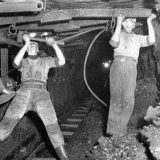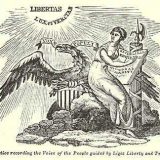Siempre es un alivio encontrar apoyo o confirmación de las propias tesis. En los últimos días hemos venido siguiendo desde estas líneas los rumores entorno a la figura del nuevo Presidente iraní Mahmoud Ahmadineyad. Seguro que muchos lectores acojieron nuestro interés por el caso con no pocas dosis de escepticismo. No se lo reprocho, pues, he de confesarlo, ellos no comparten el día a día con un miembro de la oposición iraní en el exilio, yo sí. No esperen nombres ni informaciones prodigiosas, no es el estilo de esta casa. Pero cuando me llaman por teléfono y me dan una pista, la sigo y, si es buena, se publica.
Que los austríacos tenían una cuenta pendiente con el señor Ahmadineyad podíamos haberlo escrito hace una semana. Pero es mejor que sean los propios políticos vieneses quienes nos expliquen qué mosca les pica:
AUSTRIAN prosecutors yesterday said they were investigating claims that Iran’s president-elect was linked to a 1989 assassination of a Kurdish opposition leader, based on new information brought to their attention by an Austrian politician.
Abdul-Rahman Ghassemlou, an Iranian Kurdish politician, and two colleagues were gunned down on 13 July, 1989, in Vienna.
A spokesman for the city prosecutor’s office confirmed an investigation was underway as a result of new information on the slayings provided by Peter Pilz of the opposition Green party. «We must check the information to see if the information provided by the witnesses is correct,» the spokesman said. Fuente.
Ante tales acusaciones y la apertura en firme de la investigación, la reacción de Teherán no se ha hecho esperar:
Iran’s clergy-dominated regime reacted angrily to Austria’s announcement on Tuesday that it was investigating claims that the newly-elected ultraconservative president was involved in the assassination of an Iranian Kurdish dissident.
Foreign Ministry officials summoned Austria’s ambassador in Tehran to lodge a strongly-worded protest against the investigation.
«One should not allow the good relations between the two countries to be disrupted by allegations provided by Zionist elements”, Ebrahim Rahimpour, director-general of the Foreign Ministry for Western Europe, told the Austrian ambassador.
La respuesta de los investigadores austríacos no es menos contundente:
Austrian prosecutors on Tuesday said they were investigating new information in the 1989 slaying of Iranian Kurdish politician Abdul-Rahman Ghassemlou brought to their attention by an Austrian lawmaker who claims Iran’s president-elect was linked to the assassination.
Ghassemlou and two colleagues were gunned down July 13, 1989, in Vienna.
A spokesman for the Vienna prosecutor’s office confirmed an investigation was under way as a result of new information provided by Peter Pilz of the opposition Green party concerning the assassination of Ghassemlou.
«We must check the information to see if the information provided by the witnesses is correct,» said the spokesman, Ernst Kloyber.
Prosecutors want to interview several witnesses now believed to be in France, their spokesman said. Pilz said that among them is a former Iranian journalist who interviewed one of the alleged killers.
Pilz said he gave Austrian authorities details of statements made by witnesses with information he suggested only people involved in the case might know. Fuente de ésta y de la anterior anotación.
Mientras, para darnos pruebas fehacientes del cambio progresista y aperturista en Irán, el nuevo Gobierno ya se ha puesto «manos a la obra» y aplica políticas nuevas de tolerancia y pluralidad:
Guards in Tehran’s notorious Evin Prison, where political prisoners are held, carried out a raid on cells in Ward 350 on Tuesday, injuring prisoners and confiscating personal belongings and written materials.
The raid was carried out at 6 a.m., when prison guards led by an officer called Abbasi charged into the ward.
Some political prisoners were injured in the raid, including Mohammad Moussavi and Mostafa Jo’kar. The authorities wanted to transfer both of them to Rajai-Shahr Prison in Karaj, west of Tehran, but as a result of resistance from other political prisoners they have not yet been transferred.
Evin Prison was built by the Shah’s regime as a modern security prison to house political dissidents, but it became the Islamic Republic’s most dreaded gulag and the site of numerous political executions. Fuente.
Yo no sé a que espera Moratinos para enviar un mensaje de felicitación a sus «aliados» en la paz y la libertad.




